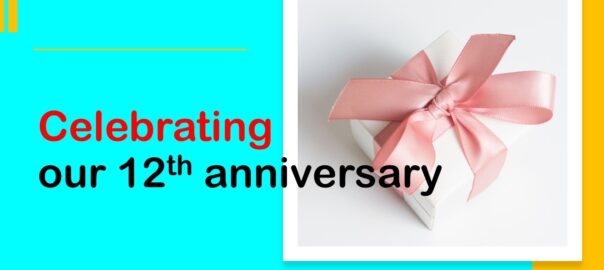Blogs are the stepping stones for one’s writing journey
It gives us immense pleasure to release our twelfth-anniversary issue and the first quarterly issue (January- March) of 2021.
The 12 years of academic journey to promote and enhance local scholarship has produced 12 resourceful volumes, 98 issues, and more than 600 blog posts, articles, and interviews, and more than thousands of comments, questions, and interaction from our readers. Most importantly, the literature on Choutari is increasingly being cited around the world.
Reflecting on the contributions of ELT Choutari, what stands out most to us is its contribution to groom and encourage the young, emerging, and first-time authors to publish their blogs, which is a great way of building a robust local scholarship. Looking at the issues of the past three years, it was found that ELT Choutari has published the blogs of 42.46% of such authors. In a recent survey, out of some suggestions, one respondent expressed, “encourage young writers to get involved in preparing scholarly writeups.” Looking at the publication trends on ELT Choutari, we can proudly say that ‘yes we are encouraging and grooming young writers’. And we would like to grow the quantity and quality of their write-ups in the years to come despite the fact that it is often challenging to push forward the new authors to draft their first write-up. Although it often challenging to make them write, we are confident that their rich experiences, practices, and native perspectives would definitely contribute to the scholarly conversation to advance their profession.
We believe that blogs are the first step to start the writing journey of young, emerging, and first-time authors. When I look back to my own writing journey, it goes back to my first blog published on ELT Choutari. Starting as a blogger, I gradually learned the writing and publication process, which eventually boosted my confidence to publish op-eds and research papers in national and international journals. Therefore, blogs are a great way to begin one’s writing journey as they are informal, personal, and based on the lived experiences, which are interesting to read and easier to develop than writing a research paper. The young and first-time authors on ELT Choutari have also started blogs based on their lived experiences, which are as simple as how they learned the English language, challenges and best practices of teaching, reflective narratives of preparing their thesis, or reflections on the events they attended. Therefore, if anyone wishes to write and publish but not sure what to write and how to write, we strongly suggest to start with a blog.
Writing and publishing is also a great tool for one’s professional development. Anyone wishing to write goes through a serious literature review, which definitely expands their professional horizons. Moreover, writing requires deep and critical thinking, reasoning, evaluating, and reflecting, which brings more clarity on our thoughts and professional actions. Our survey shows that the majority of our readers are teachers, who have both painful and joyful experiences and such experiences are very fertile to start their blogs and eventually contribute to their own professional development.
Presenting you the anniversary issue, we are excited to offer you the five diversified blogs and papers including one bonus blog! In the first scholarly article titled Teacher identity and the new forms of governmentality in higher education in Nepal, Raj Kumar Baral & Prem Phyak explore the crisis of teachers’ academic identity amidst the highly politicized system of university through the powerful narratives.
Similarly, Ashok Raj Khati on his post Understanding thesis writing as a socio- cultural practice in the university than a ‘ritual’ shares his scholarly perspective on the burning issue of ‘research and thesis writing’ in our university system with very engaging anecdotes and claims that graduate research should be advanced through the socio- cultural perspective rather than only treating as the cognitive activity.
On the other hand, in his research paper English teachers’ perspectives on classroom interaction: A phenomenological study, Bhim Lal Bhandari shares his findings on the practices and perspectives of English teachers on classroom interaction between teachers-to-students and students-to-students for effective language learning.
Likewise, Samita Magar on her blog, Two good practices of teaching vocabulary: reflection of a teacher presents two practical and replicable good practices of teaching vocabulary to English Language Learners (ELL) based on her action research.
Presenting you a different taste, Karuna Nepal on her blog Exploring the readers’ response and reflections shares some interesting responses and reflections of the Choutari readers based on the findings of a fresh survey, which ranges from the purposes and motivation of our readers for navigating our magazine to their expectations and feedforward.
Lastly, as an editor’s choice, we offer you a blog on Assessment for learning: 4 tips for teachers, which offers four practical ways of using assessment for learning (not only for assessment for the sake of assessment). One of the reasons behind sharing this blog is to meet the expectation of our readers wishing to blogs offering tips on teaching-learning, which was suggested to us through the survey. Hope you will enjoy it.
Here is the list of posts for your further exploration:
- Teacher identity and the new forms of governmentality in higher education in Nepal by Raj Kumar Baral & Prem Phyak
- Understanding thesis writing as a socio- cultural practice in the university than a ‘ritual’ by Ashok Raj Khati
- English teachers’ perspectives on classroom interaction: A phenomenological study, by Bhim Lal Bhandari
- Two good practices of teaching vocabulary: reflection of a teacher by Samita Magar
- Exploring the readers’ response and reflections by Karuna Nepal
- Assessment for learning: 4 tips for teachers by Chris Thorn
While releasing this issue, we take the pleasure of welcoming and introducing Karuna Nepal (MPhil) and Sagar Poudel (MPhil) to our editorial team. Having a strong background of teaching English from schools to universities, both have published blogs, research papers, and have presented papers on conferences extensively. Likewise, they are associated with ELT Choutari as reviewers for the last one year.
Now, I would like to thank all the contributors of this issue. Likewise, I would like to offer special thanks to Karuna Nepal, the co-editor, for her rigorous support during the process of reviewing and editing the articles. Likewise, sincere thanks to Ganesh Bastola, Karna Rana, Nanibabu Ghimire, Ashok Raj Khati, Ekaraj Koirala, Sagar Paudel for reading and reviewing the blogs rigorously. In addition, Praveen Kumar Yadav deserves special thanks for giving Choutari a new theme and design.
On the occasion of our 12th anniversary, the current editorial team would like to extend our sincere gratitude to all our founding members, past editors, contributors, well-wishers and most importantly our readers.
Finally, we request you to drop your comments for the blog posts and papers you read, share them in your network, and consider writing your own blog post for our upcoming April- June issue.
Thank you!

